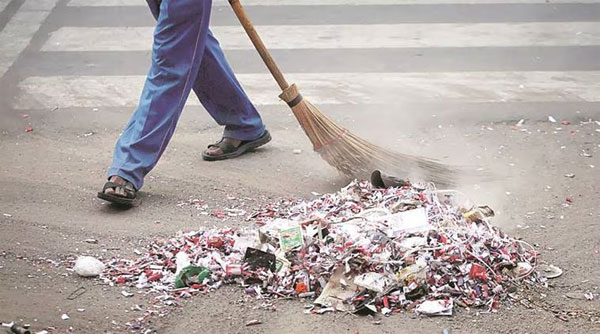Daijiworld Media Network - New Delhi
New Delhi, Aug 31: With just a year left to meet key targets under Swachh Bharat Mission-Urban 2.0 (SBM-U 2.0), the Ministry of Housing and Urban Affairs (MoHUA) convened a high-level virtual meeting with all states and union territories to ramp up efforts toward cleaner cities and visible urban transformation.
Chaired by Union Minister Manohar Lal Khattar, the session underscored a sharpened focus on Cleanliness Target Units (CTUs) — city spots often plagued by neglect, illegal dumping, or encroachment. CTUs, which will now be geo-mapped on the Swachhata Hi Seva portal, are being positioned as pivotal engines of change in India’s urban landscape.
Khattar emphasized that cleanliness and urban development must progress hand-in-hand, calling for cities to go beyond “paper-clean” metrics and deliver visible, felt cleanliness that improves citizens’ daily lives. “CTU cleaning is about converting eyesores into areas of pride, restoring the dignity of public spaces,” he stated.

To expedite progress, the Ministry unveiled a multi-step framework that includes:
• Regular monitoring and fast-tracked clearance of mapped CTUs.
• Citizen engagement via the Swachhata App, which auto-assigns reported complaints and tracks resolution.
• Beautification of cleaned areas to prevent re-accumulation.
• Collaboration with PSUs, CSR bodies, private firms, and NGOs for CTU adoption.
Special attention is being given to Legacy Waste Dumpsites, categorised as high-intensity CTUs requiring significant resources and time to transform. States were urged to direct municipal bodies (ULBs) to prioritise these zones and adopt aggressive remediation strategies.
Minister of State Tokhan Sahu urged all stakeholders to “act swiftly and decisively”, noting that only 12 months remain to achieve SBM-U 2.0 targets. He reiterated the need for urgent interventions in solid waste management and waste processing infrastructure.
Adding further momentum to the mission, the Ministry also launched Swachh Shehar Jodi (SSJ) — a peer mentorship model where 72 high-performing cities will guide 72 low-performing ones under the principle of ‘Each One Teach One’. This initiative seeks to scale up sanitation success models and foster structured collaboration within states.
With two national review rounds held in just the last two months, the Ministry is pressing states to fast-track implementation of compressed biogas (CBG) plants, dumpsite remediation, and solid waste processing. The aim remains clear: achieving visibly cleaner, garbage-free cities with real impact on the ground.
As India inches toward its 2026 deadline for SBM-U 2.0, today’s meeting sends a clear message — the time for passive compliance is over, and the final push toward sustainable urban sanitation must begin in full force.